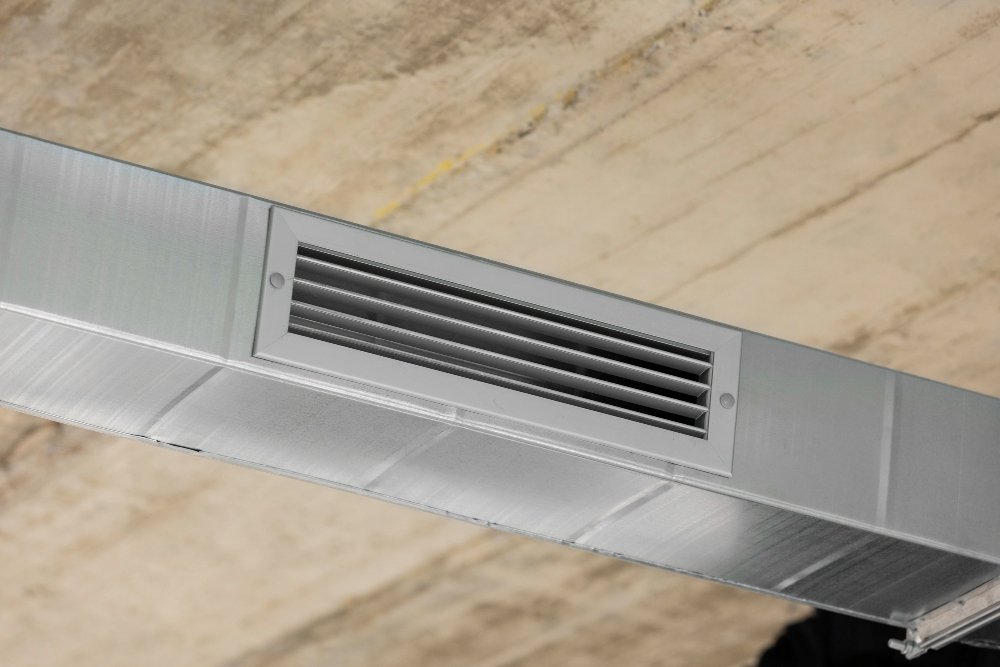Home heating technology has come a long way in recent years, with innovations focused on energy efficiency, convenience, and sustainability. As homeowners look for smarter, greener, and more cost-effective ways to stay warm, the heating industry has responded with groundbreaking advancements.
In this blog, we’ll explore some of the latest trends and technologies revolutionizing home heating, helping you decide whether it’s time to upgrade your system and reap the benefits of modern solutions.
1. Smart Thermostats: Precision Heating at Your Fingertips
Smart thermostats are changing the way we manage home heating. These devices allow homeowners to control the temperature of their home from anywhere using a smartphone or voice-activated assistant.
- Features:
- Learning capabilities that adapt to your schedule and preferences.
- Integration with home automation systems.
- Energy usage tracking and reports.
- Benefits:
- Maximizes energy efficiency by heating only when and where it’s needed.
- Reduces utility bills while maintaining comfort.
Some popular options include the Nest Learning Thermostat and Ecobee Smart Thermostat, both of which offer sleek designs and robust functionality.
2. Heat Pumps: The Future of Heating and Cooling
Heat pumps are quickly becoming a preferred option for modern homes, thanks to their dual functionality for heating and cooling. Unlike traditional systems that generate heat, heat pumps transfer heat from the air, ground, or water into your home.
- Advancements in Heat Pump Technology:
- Cold Climate Heat Pumps: Designed to perform efficiently even in sub-zero temperatures.
- Inverter Technology: Allows heat pumps to modulate their power output, reducing energy consumption.
- Benefits:
- Highly energy-efficient and environmentally friendly.
- Offers year-round comfort with both heating and cooling capabilities.
- Works well with renewable energy systems like solar panels.
3. Radiant Heating: A Luxurious and Efficient Choice
Radiant heating is gaining popularity for its ability to provide consistent, even warmth. New advancements in radiant floor heating systems have made them more accessible and efficient.
- What’s New:
- Thin-film electric mats that can be installed under various types of flooring, including tile, hardwood, and laminate.
- Hydronic systems with advanced temperature control for energy savings.
- Benefits:
- Silent operation and no visible equipment.
- Eliminates drafts and cold spots.
- Ideal for allergy sufferers, as it doesn’t circulate dust like forced-air systems.
4. Hybrid Heating Systems: The Best of Both Worlds
Hybrid heating systems combine the efficiency of a heat pump with the power of a traditional furnace. These systems automatically switch between the two based on outdoor temperatures to optimize performance.
- Why It’s Innovative:
- Smart controls determine the most energy-efficient heating source at any given time.
- Reduces dependency on fossil fuels while ensuring reliable heating in extreme weather.
- Benefits:
- Significant energy savings.
- Lower environmental impact compared to conventional systems.
5. Zoned Heating Systems: Customized Comfort
Zoned heating systems allow you to control the temperature of individual rooms or zones in your home. This technology is now more advanced, thanks to improved ductwork designs and integration with smart thermostats.
- What’s New:
- Wireless sensors for each zone, eliminating the need for extensive rewiring.
- Ductless mini-split systems with multiple indoor units for precise zonal control.
- Benefits:
- Reduces energy waste by heating only the spaces you’re using.
- Tailors comfort levels for different areas of your home.
6. Geothermal Heating: Harnessing Earth’s Energy
Geothermal heating systems are becoming more efficient and easier to install, making them a viable option for more homeowners. These systems use the stable temperature of the earth to provide heating, cooling, and even hot water.
- Recent Innovations:
- Horizontal loop systems that require less digging for installation.
- Hybrid geothermal systems that pair with solar panels for maximum efficiency.
- Benefits:
- Exceptionally low operating costs.
- Long lifespan (20-25 years for equipment, 50+ years for ground loops).
- Significantly reduces greenhouse gas emissions.
7. Advanced Insulation and Ventilation Systems
While not strictly a heating system, advancements in insulation and ventilation technology play a crucial role in optimizing heating performance. New materials and techniques minimize heat loss, making homes more energy-efficient.
- What’s New:
- Aerogel insulation, which provides superior thermal resistance while being lightweight and thin.
- Heat recovery ventilation (HRV) systems that capture heat from outgoing air and transfer it to incoming fresh air.
- Benefits:
- Keeps your home warmer with less energy use.
- Improves indoor air quality while maintaining energy efficiency.
8. Solar-Powered Heating Systems
Solar heating technology is evolving rapidly, offering homeowners a renewable and sustainable option for heating their homes.
- Innovations:
- Solar thermal systems that use advanced collectors to capture and store heat.
- Combination systems that integrate solar heating with existing HVAC systems.
- Benefits:
- Drastically reduces reliance on traditional energy sources.
- Lowers utility bills over time.
While the upfront cost of solar systems can be high, government incentives and tax credits often offset the investment.
9. Connected HVAC Systems: Smarter Homes, Better Heating
The rise of the Internet of Things (IoT) has brought us connected HVAC systems that use sensors, AI, and automation to provide optimal heating.
- Features:
- Remote monitoring and diagnostics via apps.
- Predictive maintenance alerts to prevent system failures.
- AI-powered optimization based on weather patterns and usage habits.
- Benefits:
- Simplifies heating system management.
- Ensures consistent performance and energy savings.
Final Thoughts
Heating technology is evolving to meet the demands of modern homeowners who prioritize efficiency, sustainability, and convenience. Whether you’re looking to upgrade your existing system or install a brand-new one, exploring these innovations can help you stay warm while saving money and reducing your environmental impact.



